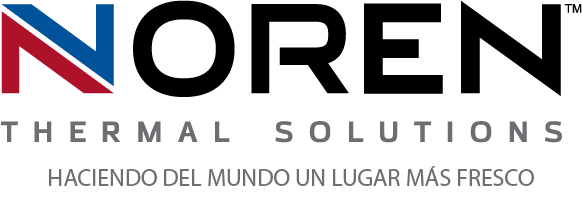 When it comes to enhancing operations in most industries, the main focus is typically on improving a company’s overall efficiency and productivity. Companies often seek to implement the technological solutions that will most effectively boost their output or reduce their costs of operations. In the realm of electrical thermal management, the goals of implementing more advanced solutions are the same. However, companies today also have to consider how their operations impact the environment around them. With more streamlined heat exchangers, they can enjoy significantly more eco-friendly electrical cooling that can help make the rest of their operations more environmentally friendly, as well.
When it comes to enhancing operations in most industries, the main focus is typically on improving a company’s overall efficiency and productivity. Companies often seek to implement the technological solutions that will most effectively boost their output or reduce their costs of operations. In the realm of electrical thermal management, the goals of implementing more advanced solutions are the same. However, companies today also have to consider how their operations impact the environment around them. With more streamlined heat exchangers, they can enjoy significantly more eco-friendly electrical cooling that can help make the rest of their operations more environmentally friendly, as well.
The value in eco-friendly operations
The growing need to make their operations more eco-friendly has guided many companies’ latest technological innovations. These include the use of more sustainable energy sources, such as solar and wind power, as well as the implementation of technologies that utilize less energy and produce smaller environmental footprints. In most areas, this change has been challenging, but it’s been especially so in areas of electrical thermal management. Often, this is because of the electrical cooling processes that traditional thermal management systems utilize, such as air conditioning and air compression. With their large energy requirements, complicated mechanical equipment, and use of environmentally hazardous substances, they can make it difficult for companies to maintain a small environmental footprint while also successfully cooling their various technologies.
Environmental challenges to traditional cooling
For older electrical systems, the use of conventional cooling methods was usually sufficient. However, the more powerful technology has become, the more demanding their applications are on their electrical cooling systems. When those systems rely on processes that generate cold air and continuously circulate it throughout an enclosure, the demands on them can lead to significantly higher energy consumption and the use of more potentially harmful chemicals. The requirements to maintain older cooling solutions can make it extremely difficult for companies to lower their overall environmental footprints, and can place substantial burdens on their overhead costs.
Heat exchangers improve environmental footprints
For companies that utilize advanced technologies, modern heat exchangers have become a more popular electrical thermal management solution, and for many different reasons. Unlike older solutions, heat exchangers don’t utilize cold air to cool electrical enclosures, and therefore, don’t require the same considerations for operating them. Instead, heat exchangers are designed to take advantage of an eco-friendly cooling fluid, which rapidly absorbs and transfers electrical waste heat with minimal energy. For more information about why eco-friendly electrical cooling matters to most companies, call Noren Thermal Solutions in Taylor, TX, at 866-936-6736.







